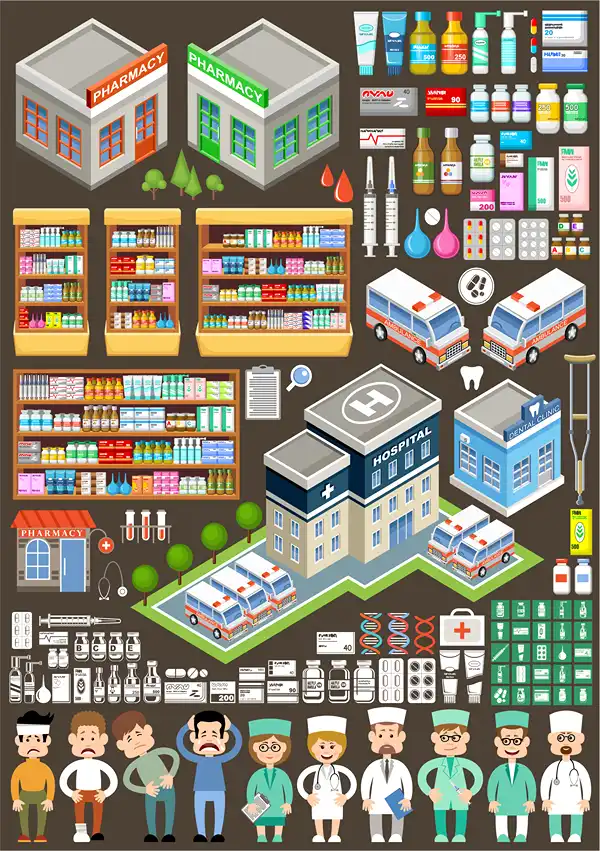Exploring Different Career Paths in Health
Have you ever wondered why so many people in your social circle seem to be working in healthcare in one form or another? From your cousin starting nursing school to your neighbor taking an online nutrition course, the health field has become one of the most diverse, in-demand, and constantly evolving career arenas.
In this guide, we will share different career paths in health and what they mean today, from clinical and non-clinical roles to technology-driven avenues.
Non-Clinical Health Careers
Not everyone in health works with patients. Some of the fastest-growing opportunities exist in administrative, managerial, and business-oriented roles. Hospital administrators, human resources specialists, and compliance officers are essential for keeping systems functional. These careers require knowledge of healthcare regulations, budgeting, and staffing, making them attractive for individuals with backgrounds in business or law.
Insurance companies, consulting firms, and pharmaceutical corporations also provide non-clinical paths. Careers in these areas often involve analysis, negotiation, and strategy rather than direct patient care. While some criticize the profit-driven side of healthcare, the reality is that these roles play a significant part in shaping the system’s sustainability and efficiency. For those who prefer working with systems rather than symptoms, these jobs provide a path that is less emotionally draining while still tied to health outcomes.
A Growing Field Shaped by Demand
The health sector continues to expand because people are living longer while also facing rising rates of chronic illness. Add to this the lessons from the pandemic, and it becomes clear why the U.S. Bureau of Labor Statistics projects steady growth in healthcare jobs. Nurses, doctors, mental health counselors, and public health specialists are needed more than ever. Hospitals still struggle with staffing shortages, and mental health services remain stretched thin.
These gaps are driving new programs that combine fields, such as Masters and PsyD combined programs, which allow students to prepare for integrated roles where clinical and academic skills intersect. By training in both areas at once, graduates position themselves for careers that balance hands-on practice with broader system-level knowledge. This mix of need and innovation highlights an important reality: careers in health are no longer limited to a narrow set of traditional jobs. The boundaries between clinical care, technology, administration, and education are blurring.
Today, someone interested in health can just as easily find themselves working with patients in a clinic, managing data for a hospital system, or running prevention programs in the community. The key factor shaping these opportunities is the growing recognition that health does not sit neatly inside hospital walls.
The Rise of Technology and Hybrid Roles
Health careers have also shifted because technology is no longer a support tool; it is a central driver of care. Telehealth exploded during the pandemic, and it has remained a staple for patients who prefer convenience or live in remote areas. This means healthcare providers now balance traditional in-person practice with digital platforms. For many professionals, the shift has opened opportunities to specialize in digital care delivery or to combine technology with clinical expertise.
At the same time, health data has become a prized resource. Professionals who can analyze patient records, track health outcomes, and improve efficiency are now critical hires. Data analysts, informatics specialists, and IT experts with health backgrounds are shaping how systems work behind the scenes. These roles bridge the gap between medical practice and technical innovation, providing careers that are less about stethoscopes and more about software.
The trend extends to research and personalized medicine. Careers in genetics, biotechnology, and pharmaceutical development continue to grow, driven by demand for treatments tailored to individual patients. The shift requires professionals who are comfortable moving between lab research and clinical applications. In short, technology has turned healthcare into a field where hybrid roles dominate, forcing both newcomers and veterans to adapt.

Public Health and Policy Careers
While much attention falls on doctors and nurses, the pandemic reminded the world how vital public health professionals are. Careers in epidemiology, health policy, community education, or mental health nursing now receive more visibility than before. Public health workers monitor outbreaks, design vaccination campaigns, and develop programs that address systemic issues like obesity and addiction.
The broader societal trend toward preventive care also fuels this shift. Employers, schools, and local governments invest more in prevention because treating illness after it occurs is costly. Public health specialists who can design, implement, and evaluate large-scale programs are in high demand. They often work in government agencies, nonprofits, or international organizations where the focus is on shaping long-term health outcomes rather than providing direct treatment.
Policy roles offer another route for those who want to influence systemic change. Professionals in these careers focus on legislation, funding, and regulation. Whether drafting bills on healthcare access or analyzing Medicaid data, policy analysts and advocates shape the framework in which healthcare operates. For people drawn to research, data, and advocacy rather than clinical care, these careers offer a way to influence millions at once.
Global Health and Humanitarian Careers
Global health careers offer a different perspective, focusing on challenges that cross borders. Professionals in this field address diseases like malaria, coordinate disaster responses, and support vaccination campaigns in underserved regions. These roles often require adaptability, cultural awareness, and a willingness to work in unstable conditions.
Humanitarian health careers carry unique challenges. Resources are limited, logistics are complex, and political conditions can be unstable. Yet many professionals find the work rewarding because the impact is direct and visible. Organizations such as the World Health Organization, Médecins Sans Frontières, and the Red Cross rely on people trained in medicine, public health, and logistics to operate effectively.
The interest in global health has grown in recent years as international crises highlight the interconnectedness of health systems. Pandemics, migration, and climate change all affect health on a global scale, creating opportunities for careers that blend science with humanitarian values.
Choosing a Path That Fits
With so many options, the challenge for students and professionals is choosing a career that aligns with both interests and lifestyle. Some roles demand years of schooling and long hours, while others provide flexibility and quicker entry points. The decision often comes down to balancing passion for direct care with tolerance for the demands of training and work.
The variety of health careers reflects the complexity of modern society. Whether through direct treatment, policy development, data analysis, or global aid, healthcare professionals shape how people live and survive. The choice is not only about finding a stable job but also about identifying where personal skills meet public need.







